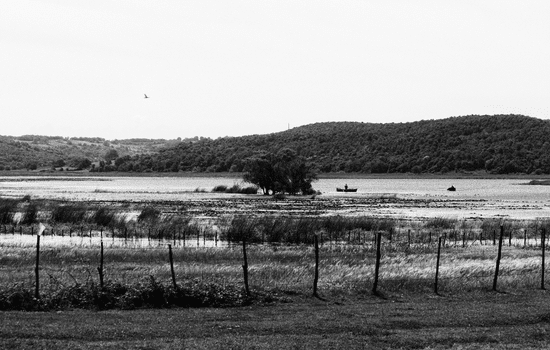Advertisements
A growing global water shortage is a problem that affects many countries around the world.
Refers to the lack of sufficient access to twelve water resources to meet the basic needs of a growing population.
Advertisements
Including drinking water, agriculture, industry and sanitation. There are several factors that contribute to the water shortage crisis.
Esses são: population growth; increase in demand for water; climatic changes; dry; Pollution and inefficient water management practices.
Advertisements
According to WHO, 2 billion people do not have access to potable water. Its shortage is a big problem that must be resolved urgently.
A global water shortage is a growing problem.
We need to find ways to reduce our water consumption and protect our precious water resources before it is too late.
But what causes global water shortages?
- Climate changes are exacerbating water shortages.
As temperatures increase and climate patterns become more extreme, dryness and flooding become more common.
- Industrialization and subsequent pollution of two water courses.
Furthermore, industrialization generally involves the construction of barrages and other infrastructure that can prevent the natural flow of water.
- Pollution
When pollution enters a water source, it may become water unsuitable for drinking or irrigation.
Reducing the amount of water available
- Burned
Fire is another important cause of water shortages, forest fires cause great damage to hydrographic basins.
We can also contaminate water sources with chemicals and debris, making them unsafe to use.
See also:
O secreted behind the perfect coffee pod
Tips to reduce water waste
Global water shortage: we are suffering from daily water shortages
In many regions, water shortages are a daily reality, with thousands of people having limited access to potable water.
This has led to widespread health problems, reduced agricultural production and economic losses.
Arid and semi-arid regions are particularly vulnerable, because they often lack sufficient water resources to sustain their populations.
The effects, the worst you can imagine, are like:
Agricultural impacts:
Irrigation systems depend on a consistent water supply and, if this supply is interrupted due to water shortage, this will have consequences.
As we colheitas we can go wrong, leading to food shortages and higher prices for consumers.
Health concerns:
Water shortages can lead to the spread of water-borne diseases, such as cholera and dysentery.
As the rates of dehydration and heat exhaustion increase in communities without access to potable water.
Economic impacts:
Water is an essential resource for many industries, including agriculture, manufacturing and energy production.
Lack of water can cause disruptions in certain industries, leading to lost jobs and reduced economic growth.
Environmental degradation:
Water shortages can result in the drying up of rivers and lakes, leading to the loss of habitats for jungle life and contributing to desertification in some regions.
Conflicts:
In some regions, water shortages contribute to conflict, as different groups compete for access to limited water resources.
Energy shortage:
Power plants, especially those that use thermal cooling, require large quantities of water to generate electricity.
Having shortages, disrupts energy production and causes widespread power outages.
Global water shortage: a solution
To address the effects of water shortages, it is important that communities implement sustainable water management practices.
Here are some ways to improve water efficiency, reduce waste, and develop new technologies for water conservation and reuse.
A study published in Nature discovered that water scarcity could cost the world economy US $63 three years until 2050.
The study discovered that water scarcity could lead to a reduction in global GDP by 3% by 2050.
The impacts would be felt more intensely in developing countries.
In many parts of the world, water shortages are a big problem.
There may be a series of harmful effects, including food and safety, health and the economy.
Water scarcity is undoubtedly a growing problem in many regions of the world, and there are some solutions that can help alleviate this problem:
Conservation and efficient use of water:
Encourage individuals and companies to economize water and use it more efficiently through education and implementation of water-saving technologies.
Recycling and reusing water:
The reuse of treated wastewater for non-potable purposes, such as irrigation and industrial processes, can help conserve the supply of potable water.
Desalination:
Transforming sea water into water twelve by means of desalinization can provide a new water source in coastal regions where water shortages are a problem.
Improve water infrastructure:
Investing in water and improving the overall water distribution system can reduce the amount of water lost due to waste and inefficiency.
Agricultural water management:
Improving irrigation techniques and reducing water used in agriculture can help conserve water supply.
Mitigation and adaptation to climatic alterations:
Addressing the root causes of water shortages, such as drought caused by climate change, is crucial in the long term.
Water pricing reform:
The implementation of a fairer pricing system that reflects the true value of water can help encourage conservation and discourage waste.

Final conclusions on global water shortages:
These solutions, when implemented together in an open manner, can help reduce water shortages and ensure that there is enough water for everyone's needs.
Water conservation is one of the most important things we can do to combat its shortage.
By using less, we can help preserve this vital resource.
A water shortage is an important question that is only ongoing as time passes in many parts of the world, and it is also having a great impact on people's lives.
Governments and international organizations are taking measures to resolve the issue of water shortages, but it needs to be done right.
This includes increasing water efficiency and conservation efforts, improving water management practices and investing in new water supply technologies.
It is important to note that the crisis of water scarcity is not just a problem for developing countries.
Our developed nations also face water shortage problems due to population growth, urbanization and changes in water use patterns.
Addressing the global water shortage crisis will require cooperation, innovation and continuous effort from governments, organizations and individuals around the world.




